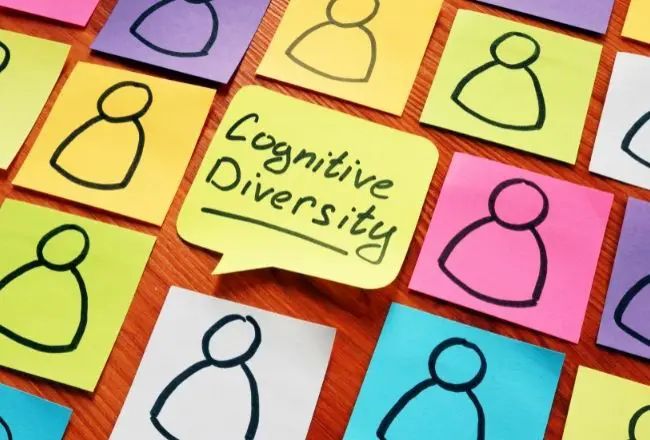One of the most studied cognitive developments is that of children, especially during the first years of their life. The psychologist whose work helped the growth of developmental psychology as a field in the 20th century is Jean Piaget. A 2002 study conducted by APA ranked him as the second most eminent psychologist of the 20th century based on journal citations, introduction in textbooks, and surveys
These 20 facts will give you a better idea about Jean Piaget’s life, and work, and psychological theories.
1. Jean Piaget’s early life
Jean Piaget was born the 9th of August 1896 in Neuchâtel, a city in Switzerland. He was the first child of Rebecca Jackson and Arthur Piaget. His father was a professor of medieval literature. At a young age, he developed a strong passion for mollusks and could stare at specimens from the Museum of Natural History for hours on end.
2. Education
He went to Neuchâtel Latin High School and after finishing his studies, Piaget decided to pursue his passion, by attending the University of Neuchâtel where he learned zoology. In 1918, he continued his studies at University of Zürich, where he studied psychology for a semester. Soon he became more and more interested in psychoanalysis and, a year later, he went to Paris to study abnormal psychology at one of the most prestigious universities, Sorbonne.
3. Professional life
While in Paris, Jean Piaget became a teacher at the Grange-Aux-Belles Street School for Boys. In 1921, he returned to his home country, Switzerland, and became the director of the Rousseau Institute. Four years later he started teaching psychology, sociology, and the philosophy of science at the University of Neuchâtel, the same university where his father used to be a professor. Piaget worked there until 1929 when he became the director of the International Bureau of Education, a position he kept for 39 years. In 1955 he created the International Center for Genetic Epistemology, where he served as its director until his death.
4. Marriage and children
Jean Piaget married Valentine Châtenay. Their first child, Jacqueline, was born in 1925. They had their second kid, Lucienne, in 1927. Their third child, Laurent, was born in 1930.
5. How his theories were born
While a teacher at the Grange-Aux-Belles Street School for Boys, Piaget had a chance to work with its director, Alfred Binet, the inventor of IQ testing. Jean Piaget noticed a certain pattern in the way children answered Binet’s IQ tests. He remarked that younger children make mistakes their older peers (and adults) are able to stay away from. This insight lead Piaget to create his theory of the stages of mental development.
Learn more about Sigmund Freud’s Contribution to Psychology
6. Jean Piaget ’s Theory of Cognitive Development
According to his theory, during our childhood, we experience four stages of cognitive progress. The first stage, known as the “sensorimotor stage”, starts at birth and lasts for 2 years. During this period, children learn thanks to experiences that involve their senses and by using their reflexes. The next stage, “the preoperational stage”, includes the age of 2 and ends at the age of 7. While children during this stage start attributing words to objects, they still have an egocentric way of perceiving their surroundings. “The concrete operational stage” occurs between the ages of 7 to 11 and is marked by the beginning of reasoning and organized thinking. The last stage, “the formal operational stage” (age 12 to 16 and beyond), is characterized by thinking and the understanding of abstract concepts.
7. Influences
In his work, Piaget was influenced, among other, by Henri-Louis Bergson and Immanuel Kant. Psychologists who influenced him most were Pierre Janet, and, obviously, Alfred Binet.
8. The link between Jean Piaget ’s work and education
Jean Piaget’s research influenced many different fields, including education, particularly in the 70s and 80s. During these two decades, both American and European methods of teaching went through radical changes by becoming more child-friendly. In fact, in 1966, the UK government took the decision to implement some Piaget’s the ideas and theories in the nation’s educational policy.
9. Types of knowledge
According to Piaget, there are three types of knowledge: physical, social, and logico-mathematical. The first one can be acquired by analyzing objects and observing their properties. Social knowledge is obtained thanks to other people, who either tell it or demonstrate it. As for logico-mathematical knowledge, it isn’t generated by any external factors, but it is put together by our mind.
10. Research methods
Paiget radically changed the way collecting research data is done. He initially implemented traditional methods but he was constantly looking for different, more reliable, research techniques.
Learn more about B.F. Skinner’s Psychological Theories
11. His children participated in his research
Most of the children Jean Piaget interviewed during his research were his own. Their role in Piaget’s work is unquestionable, as the psychologist studied them for their entire childhood.
12. Mother’s influence on Jean Piaget ‘s interests
His mother, Rebecca Jackson, was a smart and lively woman, but from Jean Piaget’s point of view, also a bit neurotic. This perception might have sparked Jean Piaget’s interest in science, especially psychology.
13. The psychologist was a gifted child
Jean Piaget proved to be an exceptionally clever kid since childhood. His passion for the study of mollusks resulted in a published article; the readers of his paper didn’t even know that they were reading a child’s work.
14. Jean Piaget ‘s canon
During his life, Piaget wrote more than 50 books and hundreds of academic papers on subjects ranging form child psychology to genetic epistemology (the study of the origins of knoweldge).
Learn more about Albert Bandura’s Contribution to Psychology
15. Jean Piaget’s zodiac sign
Born on the 9th of August, Piaget is a Leo. Typically, people born under this sign are spirited, passionate, and energetic. They are known to be sure of themselves and their abilities. Once they set a goal, Leos are determined to reach it.
16. His theory was criticized by some psychologists
Lev Vygotsky, a Russian psychologist, opposed Piaget’s theory of cognitive development. According to Vygotsky, the cultural environment of a child deeply affects the stages Piaget identified. But, in Piaget’s view, a major factor in children’s intellectual development was the kids themselves.
17. Achievements and awards
Thanks to his active career, Piaget was given the Erasmus Prize in 1972 and the Balzan Prize for Social and Political Sciences in 1979. Throughout his life, he also received 16 honorary doctorates from various prestigious universities, including Harvard, Cambridge, and Yale.
18. The view on child intellectual development before Piaget’s theory
Piaget’s theory revolutionized people’s perception regarding children’s cognitive progress. Previously, it was thought that kids are just a mini version of adults. It was Jean Piaget who put forward the idea that there’s a high contrast between our thinking during the first years of our lives and during our adulthood. He proved that a child’s mind can hold much more individuality than expected.
19. Later life
Jean Piaget died on the 16th of September 1980 in his home country. The causes of his death are unknown. He requested to be buried with his family in the Cimetière de Plainpalais.
20. Influence and legacy
Apart from his role in revolutionising our understanding of children’s cognitive development, the impact of Piaget’s research can be seen in many other fields. For instance, his work was also a source of inspiration for other philosophers, including Thomas Kuhn. More recently, Piaget’s work was incorporated into artificial intelligence research for the creation of user interfaces, programming languages, and computer systems.
Sources: Biography, Wikipedia, The Jean Piaget Society, Fondation Jean Piaget, VeryWell Mind, EduStaff, PsychCentral, American Psychological Association, SimplyPsychology



